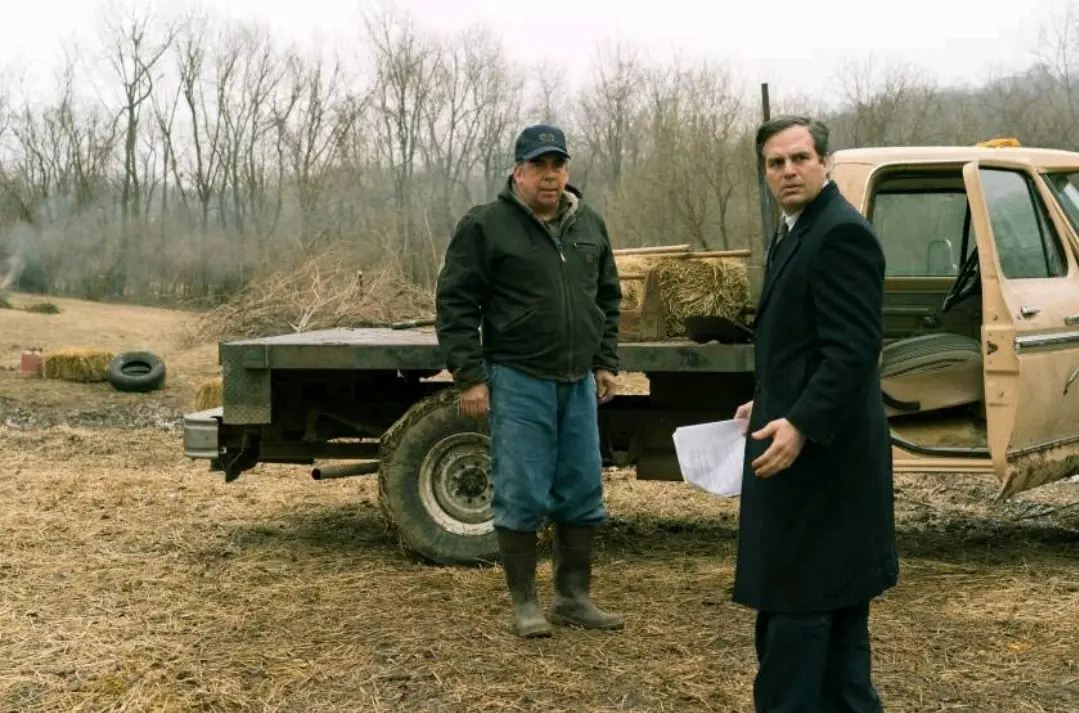Summary
Dark Waters is the best film of its kind since Erin Brockovich and A Civil Action.
Maybe I’m just naïve when it comes to a movie about an admirable man or woman who fights injustice by telling truth to power; I’m a sucker for them. You have to believe, no matter how cynical, that all law school graduates dream of fighting the good fight. Even though when it comes to lawyers, most will never come close to being Atticus Finch and have more in common with Saul Goodman than you’d like to admit.
Todd Hayne’s film, Dark Waters, is based on a still ongoing true story about a “great” American company that knowingly poisoned the community that they took up shop in. His film is a wide-eyed look at big-money corporations’ deep pockets, which incidentally is where they tend to hide their conscience.
Dark Water’s works with a sharply adapted script from Matthew Carnahan (Deepwater Horizon, 21 Bridges) and Mario Correa (scribe for the upcoming Sandra Bullock film Let Her Speak), based on the 2016 article “The Lawyer Who Became DuPont’s Worst Nightmare” by Nathaniel Rich. Mark Ruffalo stars as Robert Billot, a Cincinnati-based corporate defense lawyer, who takes on a billion-dollar company when a family friend shows him unexplained baby defects, diseases, and even deaths in Wood County, West Virginia.
How does a West Ohio lawyer get involved in a case all the way in the Mountain State? Well, when a farmer (Wildlife‘s Bill Camp) knows your “Grammars” you tend to listen. Billot visits Wilbur Tennant’s farm, where he has fields of buried cattle, and with the few, he has left, has some puzzling anger management issues. Despite concerns from his wife (Anne Hathaway) and fears from his managing partner (Tim Robbins), Billot moves forward with the case despite the Goliath versus David battle it represents.
Dark Waters is a legal thriller that’s really the best of its kind since Erin Brockovich and the criminally underrated A Civil Action. It’s less personal than the former, and without a breakout character, but its warts and all approach is refreshing by showing you the snail-like pace these court cases take, which is more akin to the latter. It’s a cold, calculated look at the way uber-wealthy corporations “play the margins” while burying their accusers with paperwork and dragging out court cases in hopes the plaintiffs die off one by one.
My only quibble with the script is the underuse of Anne Hathaway (even though I did enjoy her honest portrayal of objections to taking on the case that endangers her own family’s financial standing) and not acknowledging Billot’s may have been more than eager to sue a wealthy corporation in the hopes of making a nice payday (everything is a business, plain and simple).

Image from 2019’s ‘Dark Waters’ (Credit – Focus Features)
This is such a departure for Haynes, a man known for such a gifted, artistic eye in films like Far From Heaven, Carol, and I’m Not There. He, and along with shots from his long-time cinematographer Edward Lachman, capture the backwoods of West Virginia with haunting authenticity with frames of empty, dreary, and winter farmland that echo the feeling of an uncertainty and despair the future has for the community not only scared of the water but for the loss of jobs and income.
Though, what sets Dark Waters apart is the large cast anchored by three central performances. Mark Ruffalo is, as usual, flawless as the tenacious Billot, with a highly nuanced turn that is so understated you might not appreciate how great he is here. Then you have a scene-stealing Tim Robbins, whose yuppy managing partner takes a left turn that’s unexpected and welcome, and that gave my cynical outlook hope for the future.
Finally, you have one of the great character actors, the Incomparable Bill Camp, who is nearly unrecognizable in any part and can be neatly placed in any feature. If you put in any big-name actor in this role with anyone half as talented, they would be nominated for an Oscar. He is that good.
Dark Waters may not be Haynes’ best work, but it’s one of the best legal thriller in years. Anchored by three central performances, a flawless Mark Ruffalo, a scene-stealing Tim Robbins, and the unmatched Bill Camp, Haynes’s film is a wide-eyed look at a corporation’s fight to keep the money they made off the people that made them.
Read More: Movies like Dark Waters you must watch



